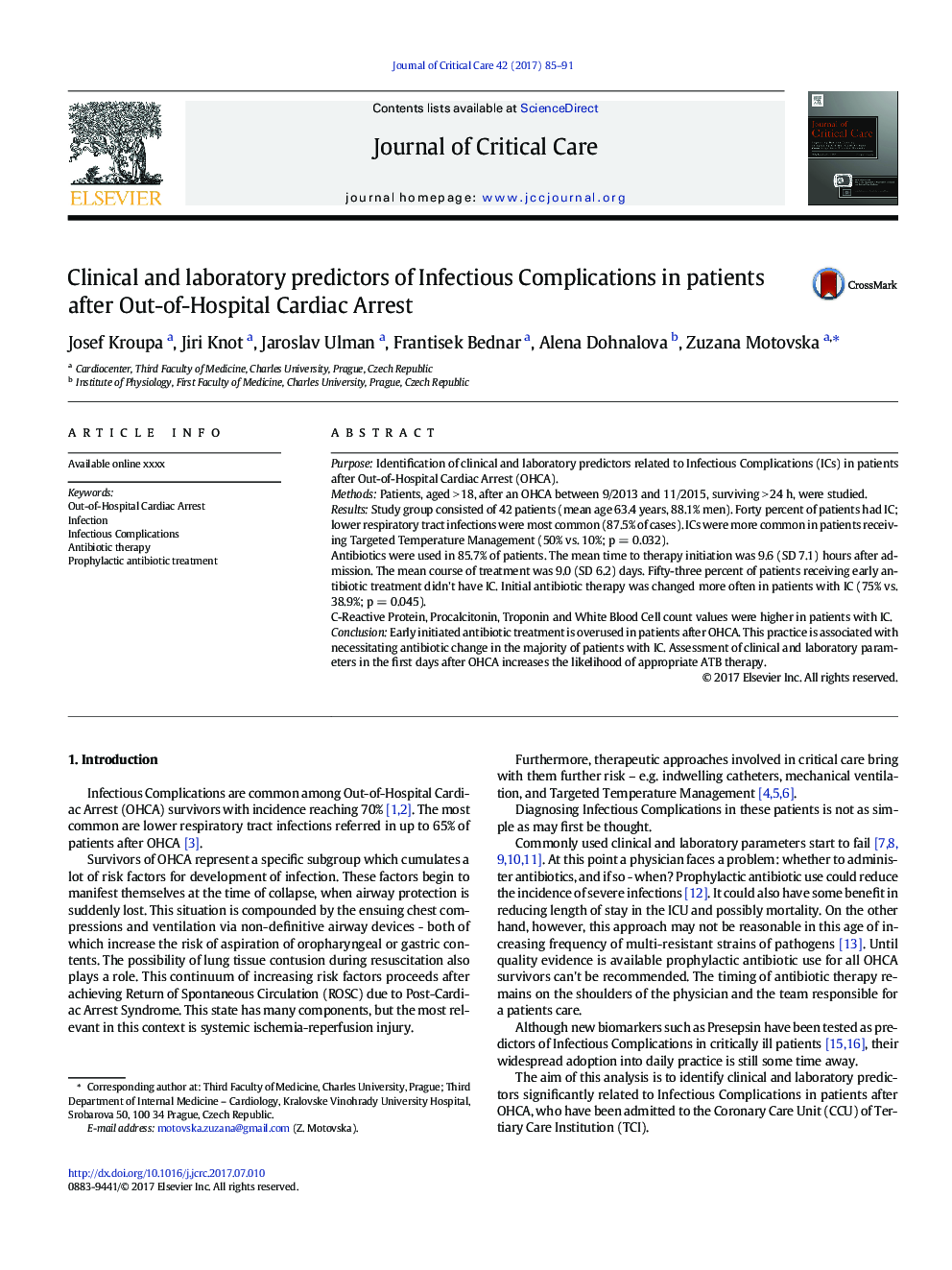| Article ID | Journal | Published Year | Pages | File Type |
|---|---|---|---|---|
| 5583316 | Journal of Critical Care | 2017 | 7 Pages |
â¢Lower respiratory tract infections are common complication in patients after OHCA.â¢Prophylactic antibiotics are overused in patients after OHCA.â¢Practice of antibiotic prophylaxis is associated with a necessity of later ATB change.
PurposeIdentification of clinical and laboratory predictors related to Infectious Complications (ICs) in patients after Out-of-Hospital Cardiac Arrest (OHCA).MethodsPatients, aged > 18, after an OHCA between 9/2013 and 11/2015, surviving > 24 h, were studied.ResultsStudy group consisted of 42 patients (mean age 63.4 years, 88.1% men). Forty percent of patients had IC; lower respiratory tract infections were most common (87.5% of cases). ICs were more common in patients receiving Targeted Temperature Management (50% vs. 10%; p = 0.032).Antibiotics were used in 85.7% of patients. The mean time to therapy initiation was 9.6 (SD 7.1) hours after admission. The mean course of treatment was 9.0 (SD 6.2) days. Fifty-three percent of patients receiving early antibiotic treatment didn't have IC. Initial antibiotic therapy was changed more often in patients with IC (75% vs. 38.9%; p = 0.045).C-Reactive Protein, Procalcitonin, Troponin and White Blood Cell count values were higher in patients with IC.ConclusionEarly initiated antibiotic treatment is overused in patients after OHCA. This practice is associated with necessitating antibiotic change in the majority of patients with IC. Assessment of clinical and laboratory parameters in the first days after OHCA increases the likelihood of appropriate ATB therapy.
